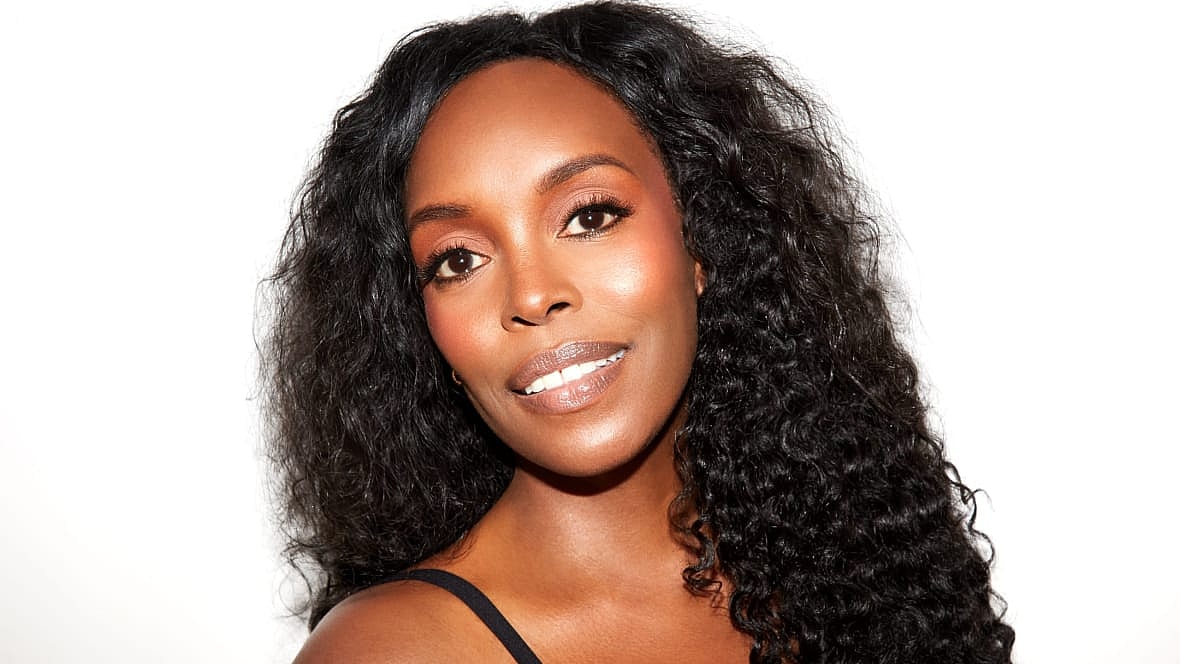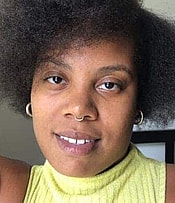For centuries, many have seen ingredients such as shea, baobab, and marula infused in staple beauty products. But until recently, there has been very little recognition of those ingredients’ rich origins in Africa.
“A-beauty,” or African beauty, is on the rise. With more and more African and Black beauty brands reintroducing the world to some of the continent’s most beloved beauty rituals and ingredients, as veteran beauty entrepreneur Nyakio Grieco puts it, it’s also time to give credit where credit is due. Grieco is co-founder of the virtual beauty emporium Thirteen Lune and founder of the skincare brand Relevant; she also boasts 21 years in the beauty industry and specifically the African beauty space. TheGrio spoke with Grieco about the growing emergence of A-beauty and how it’s a celebration of what has been here all along.

Grieco first entered the beauty industry over two decades ago while working as an assistant in the entertainment industry, and noticing the prevalence of African ingredients in beauty products landing on her desk. Specifically, Grieco, the daughter of two Kenyan educators, noted how many different products were “harnessing” African ingredients and beauty traditions “without necessarily telling the story about the sophistication of Africa and the resources that come from the cradle of civilization.”
She added, “I entered this industry because I wanted to be able to celebrate Africa and celebrate these timeless beauty secrets that I knew well because of my own family, but I also knew I deserved to give credit where credit was due.”
Many of these ingredients also possess origin stories worth passing down, said Grieco.
“I created my first beauty brand [Nyakio Beauty] based on beauty rituals and beauty secrets passed down to me by my grandfather, who was a medicine man, and my grandmother, who was a coffee farmer,” she said.
Grieco’s grandmother showed her how to create coffee scrubs while her grandfather taught her about cold-pressed natural oils, stories she shares in interviews and on her brands’ websites.
“Storytelling is at the heart of, I think, any successful brand. And, you know, origin storytelling is a way to pay respect,” she explained.
One of Grieco’s favorite African beauty stories is that of marula oil, used in many anti-aging products. In South Africa, elephants are attracted to the fermented fruit that falls from marula trees, despite how potent its natural alcohol content can be. After indulging in the fruit, the elephants are naturally intoxicated, and Africans, she said, tell stories of how the mammals appear to walk sideways — the “drunk elephants” of lore. (Beauty aficionados may also recognize this as the origin story behind the name of a well-known, non-African skincare brand that also heavily utilizes the ingredient.)
“How fun would it be if more companies would actually tell that story more when an ingredient like that could be at the base of their success?” said Grieco.
Another staple ingredient with a lengthy legacy is baobab oil, extracted from baobab trees in Sub-Saharan Africa. When one learns the legacy of these trees, it’s almost a no-brainer why their oil has long been harvested for anti-aging and hair-strengthening products. Grieco explained these trees live for thousands of years, enduring droughts and climate change, and yet, still manage to grow. Their unique shapes attest to their adaptability, and they are often used in important African traditions such as naming ceremonies.
“You think about transferring some of those benefits to things like our skin and hair. [Knowing the history] helps us to know the restorative value of that ingredient,” said Grieco.
The more well-known shea butter, she said, is widely celebrated for its hydrating qualities, but less known is that it is also locally associated with building community.
“The rituals of women farming shea and villages and the camaraderie and the community of extracting shea from the Earth really tie into this tradition that’s passed down through various tribes and villages that brings commerce to the community — and it’s done in community,” Grieco said, adding, “So I think, you know, really, tying back to the origin story of these ingredients is really as important as you know, the benefits that you achieve by using these ingredients.”
“A-beauty” can be characterized as raising the collective consciousness around these traditions and origin stories.
“It’s not a secret that these ingredients have been cultivated for thousands and thousands of years from the cradle of civilization,” Grieco noted. “I think the difference is now that as we see more beauty founders of color coming to the market, and really giving that cultural credit, it’s allowing a mass consumer to understand what goes into their products and where it comes from.”
Grieco said as “A-beauty” continues to grow, one misconception she hopes to set straight is that only people who look like her can use these products.
“I think that there’s always this misconception — which is quite ridiculous — that Black and brown people only create products for ourselves,” she said.
Debunking that myth isn’t hard, she said, when you take notice of the amount of non-Black brands using ingredients cultivated from Africa.
“I think that it’s the responsibility of the industry to give credit where credit is due by tying back their ingredients that are at the heart of their brands to the origin stories wherever they come from in the world,” she said, adding, “Because most of the ingredients that we use in beauty products are cultivated from marginalized parts of the world by people of color. So the more that we overall as an industry can tell that story, the easier it’s going to be to debunk the myth that black and brown people don’t create products for everyone.”
Grieco said this sentiment was at the foundation of her decision to co-found Thirteen Lune in 2020. Through Thirteen Lune, Grieco is both seeking to help build generational wealth in this country and give more Black and brown founders the opportunity to scale their businesses and take up space in the industry.
“By helping to scale these businesses, we’re telling a global beauty story, while also making sure to give credit back to where credit is due,” she said.

Kay Wicker is a lifestyle writer for theGrio covering health, wellness, travel, beauty, fashion, and the myriad ways Black people live and enjoy their lives. She has previously created content for magazines, newspapers, and digital brands.
TheGrio is FREE on your TV via Apple TV, Amazon Fire, Roku, and Android TV. TheGrio’s Black Podcast Network is free too. Download theGrio mobile apps today! Listen to ‘Writing Black’ with Maiysha Kai.

